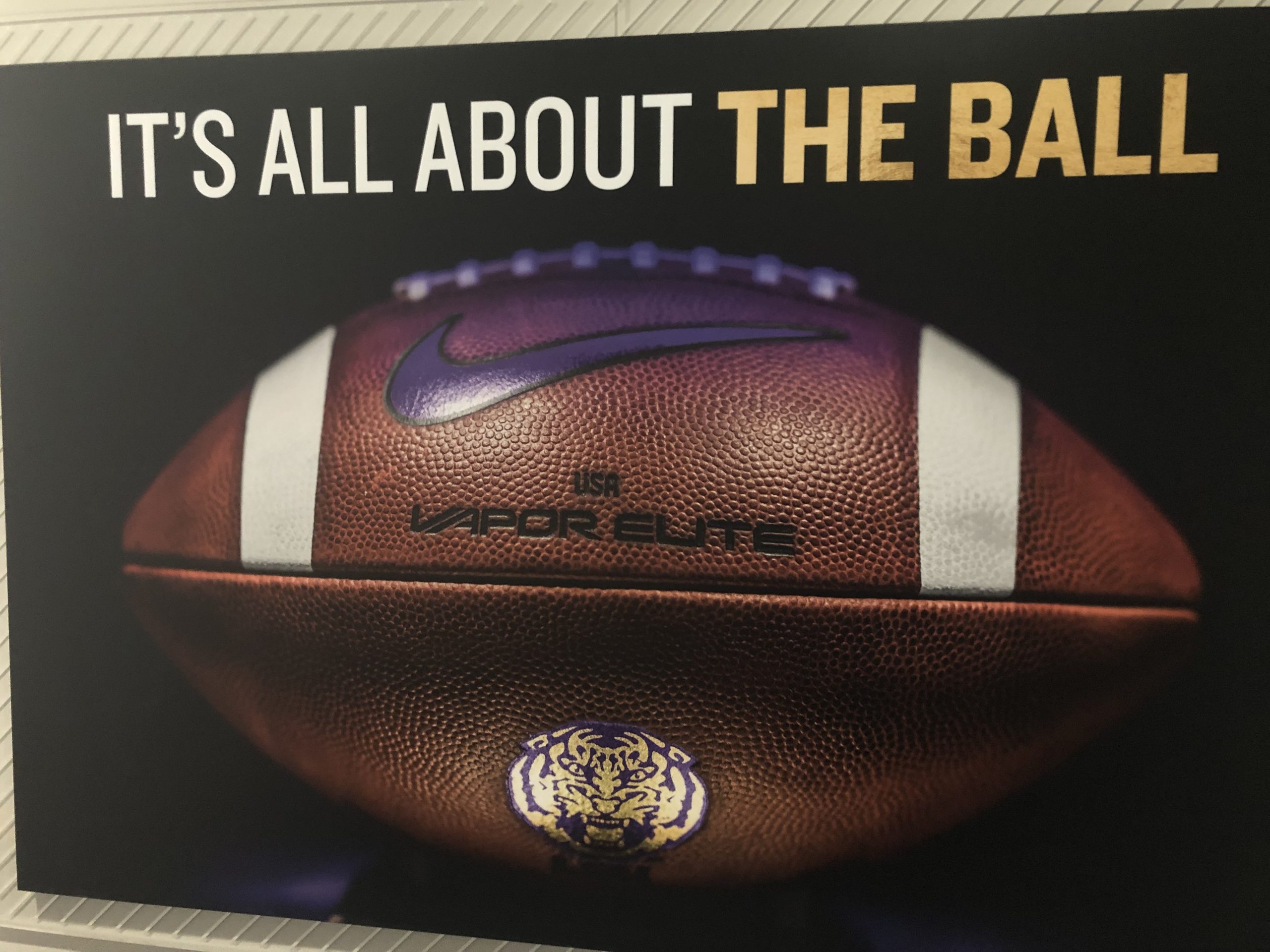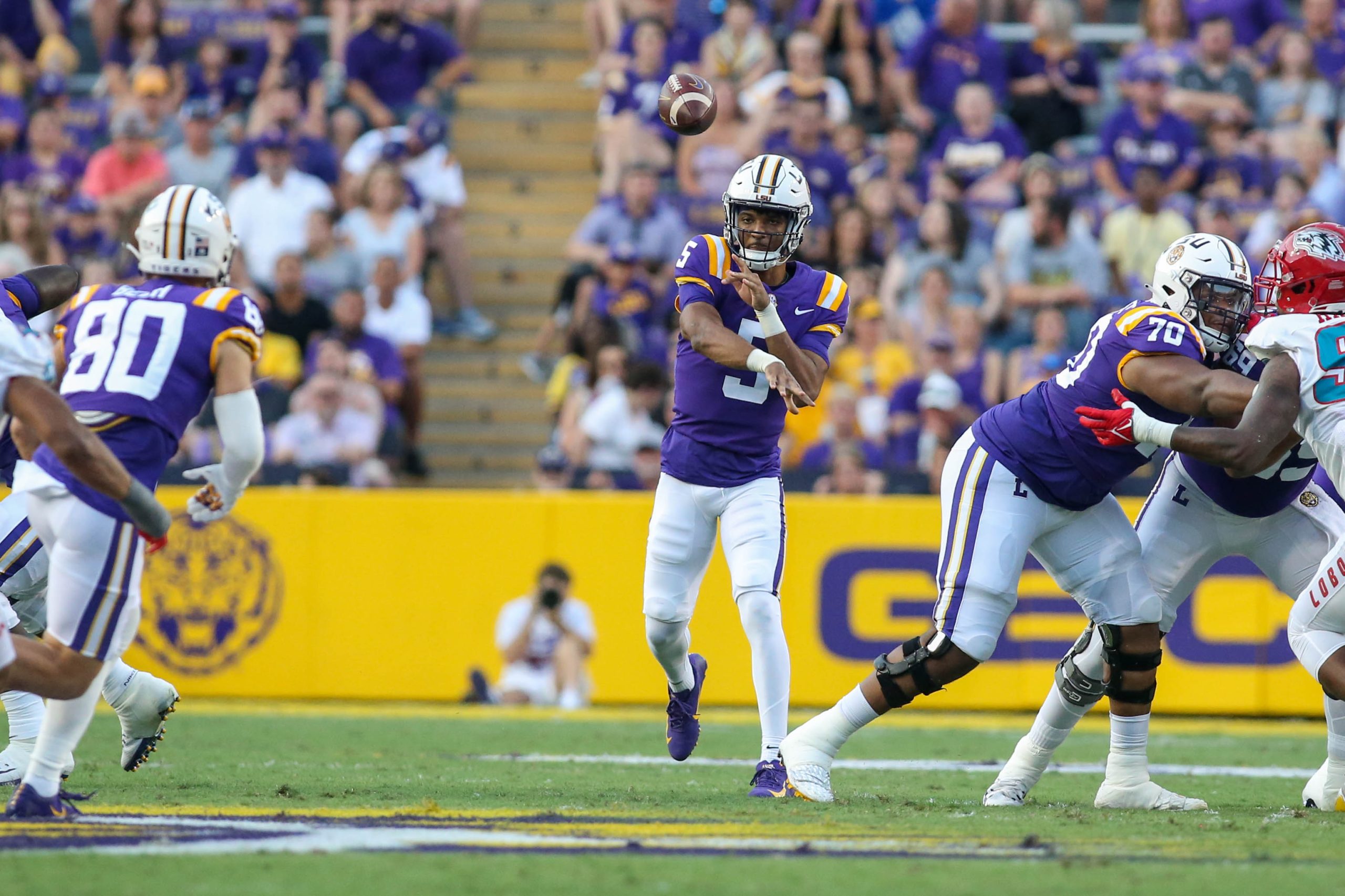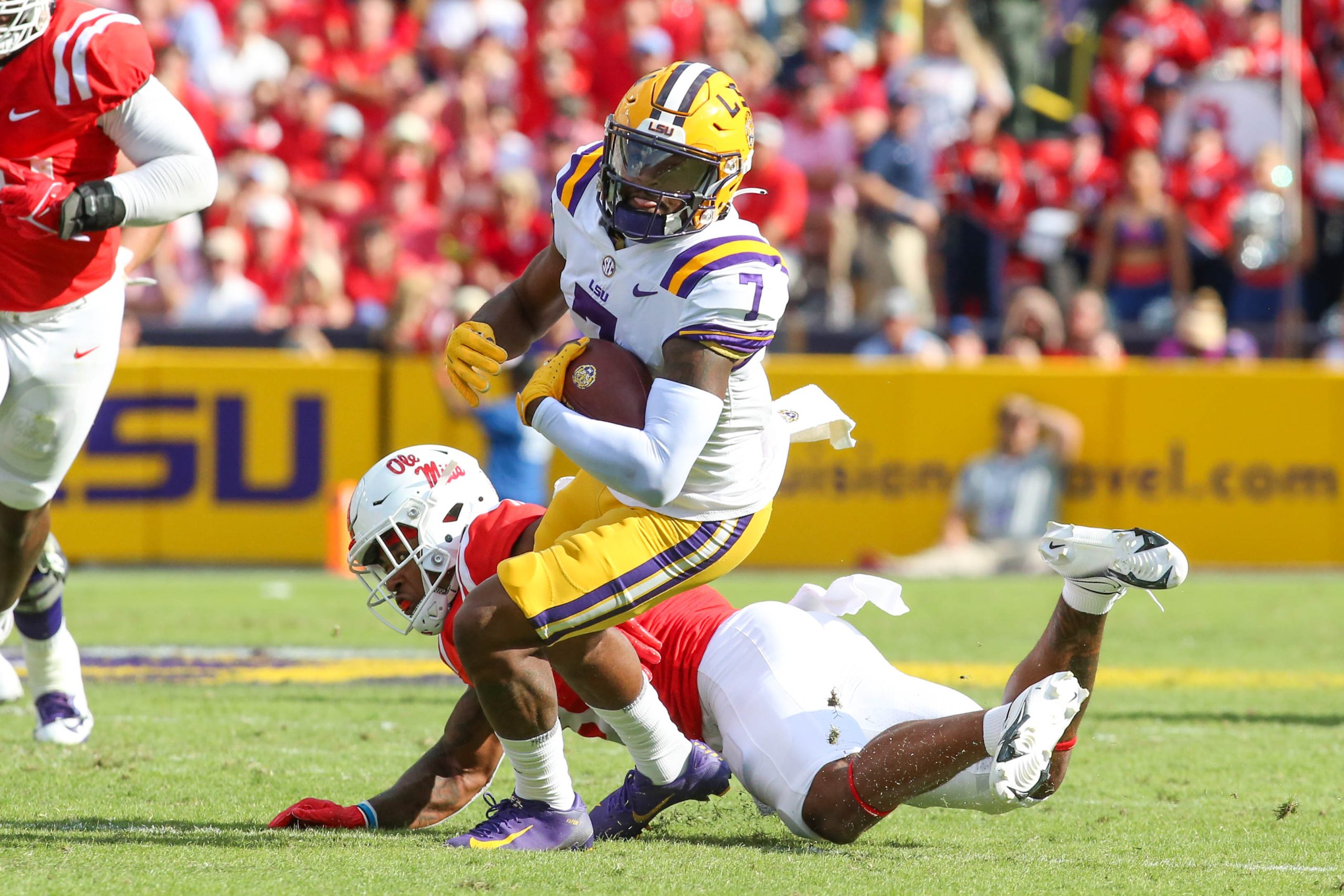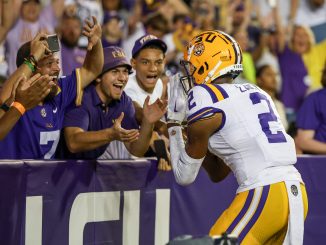
There are few football parents who recognize the risk/reward of the most violent of sports more than Derek Stingley Sr.
He was seven years old when his father, New England Patriots wide receiver Darryl Stingley, became a quadriplegic in a 1978 NFL preseason game after taking a full-speed shoulder to helmet hit from Oakland’s Jack Tatum.
Darryl never stopped Derek from playing sports, even after Derek suffered a concussion when he was leveled playing in an Arena Football League game.
Thus now, as a football coach who’s the father of LSU sophomore defensive back Derek Stingley Jr., arguably the best lockdown defender in college football, Derek Sr. understands the passionate viewpoints of whether football should be played this fall as the coronavirus pandemic continues to ravage the globe.
“We should at least give it the old college try,” Derek Sr. said on the very day the Big Ten and Pac 12 Conferences decided to delay all 2020 fall sports until next spring.
As of August 12, when this column was written just hours before our press deadline, the 2020 college football season was still alive for LSU and the rest of the 13 other Southeastern Conference teams, 15 Atlantic Coast Conference teams including one-year temporary football member Notre Dame and 10 Big 12 Conference teams.
The ACC is scheduled to start an 11-game schedule (10 conference, one non-conference) on Sept. 10. The Big 12 is scheduled to start a 10-game schedule (9 conference, 1 non-conference) on Sept. 26, the same day the SEC begins 10-game schedule with nothing but league games against each other.
Whether these conferences actually start the season isn’t known. If there is one lesson learned since COVID-19 began shutting down our country in mid-March, it’s the rules of the game are constantly changing.
The best advice medical experts give one day may not be relevant the next day as more information is learned on how coronavirus virus zigs when doctors think it zags.
It’s why the SEC, the ACC and the Big 12 didn’t jump the gun and kill the 2020 schedule before preseason practice begins. As SEC commissioner Greg Sankey said, “Take time when making decisions, this is all new and you’ll gain better information each day.”
There’s no right or wrong decision. Individual conferences made choices based on what they thought was best for their leagues, and it wasn’t necessarily health-related.
Most mid-major conferences canceled because of budgets that suffered heavy financial losses from the cancelled huge guaranteed paydays earned as road fodder for Power 5 Conference schools.
The Big Ten and Pac-12 said they delayed until the spring because of the well-being of their student-athletes, but there’s no doubt both leagues also didn’t want to be sued by parents of any player who could die.
So, what makes the remaining three leagues still standing any different than those who chose to fold?
Nothing, except for the willingness to play this thing to the end.
Even though football revenue pays the bills of entire athletic programs, the decision to forge on isn’t necessarily about finances. Most schools like LSU will be playing before half empty or three-fourth empty stadiums and will lose millions.
At this point, the cash and carry factor doesn’t enter into the equation.
It’s all about players wanting to play, some because they are chasing NFL dreams and others because they have a drastically better and safer situation on-campus and in the protective womb of a football program than they do at home.
For the vast majority of college football players who have spent most of their young lives fighting their way out of unimaginable economic family hardships, the comfort they have with a clean place to sleep, hot meals three times daily, the best medical care and a consistent sense of daily optimism is a godsend.
They understand where they came from and they don’t want to go back there.
The overwhelming majority of players in Power 5 Conferences, which can afford the latest technology such as having all athletes wear heart monitors while running, believe they are in the safest environment possible.
So do conference commissioners still willing to play like Sankey.
“They are in a much healthier situation working out in our facilities with medical care, with health protocols around COVID in this environment compared to going to lift weights are your local gym,” Sankey said just hours before the Big Ten and the Pac 12 called it quits. “Who knows who is overseeing you? What kind of health expectations? What kind of workout? What kind of monitoring?
“That’s what we, without a doubt, are continuing to do, to support a healthy return to competition.”
Critics argue that players aren’t mature enough to make a rational decision whether they should play or sit out the season without loss of scholarship, as did LSU senior starting defensive end Neil Farrell who opted out of the 2020 season after his grandmother contracted COVID-19.
“He wanted to go back home and be with her,” LSU coach Ed Orgeron said of Farrell. “I told him ‘Neil go home, come back next year, come back in great shape and have a great senior year.’”
Whether a player wants to play or not is a family choice. It’s up to every school to provide parents or guardians as much medical insight as possible to make an informed decision rather than an emotional one.
“Just give us all the information you can,” Derek Stingley Sr. said “and let us figure this thing out as a family. If we have information, I have no problem.”
It’s what has guided Sankey and other conference commissioners all along, listening closely and following the recommended protocols of the league medical advisory boards.
“The indicators are we can right now do what we’re doing in a healthy way,” Sankey said. “Were that advice to change, it certainly would be a stopping point.”
In the end, the information may say the season should be postponed until the spring, which would present new challenges and obstacles.
Or the season may start, stop, re-start or last a few games before advisory boards determine it’s no longer safe to play.
The point is the door should stay open until COVID-19 blows it shut.
“The players worked their tails off from when the pandemic first started through the summer and up until camp,” Derek Stingley Sr. said. “Let them get out there and play. If we have to shut it down after four or five games, then so be it.”




Be the first to comment